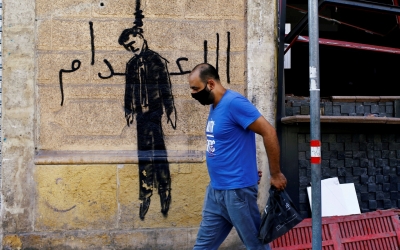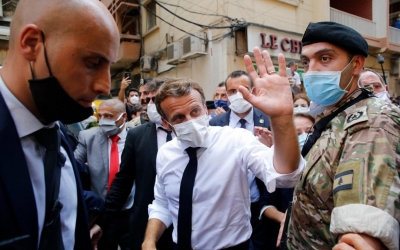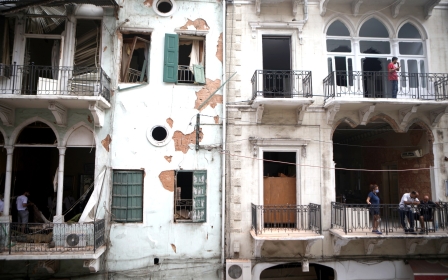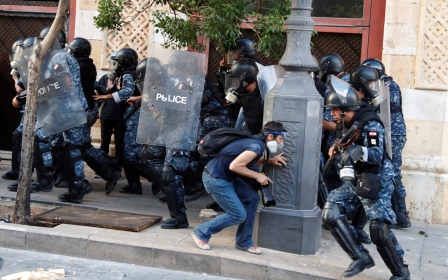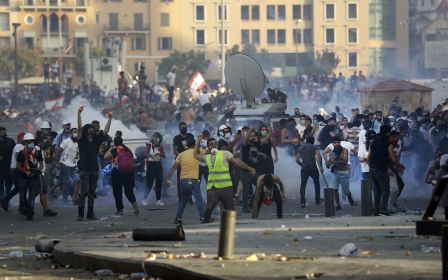Beirut explosion: Death toll rises to 190 and 50,000 houses reported damaged
The death toll from this month's Beirut port blast has risen to 190, with more than 6,500 injured and three people missing, Lebanon's caretaker government said in a report dated Sunday.
The army said on Saturday that seven people were still missing - three Lebanese, three Syrians and one Egyptian. It was not immediately clear if some had since been found.
New MEE newsletter: Jerusalem Dispatch
Sign up to get the latest insights and analysis on Israel-Palestine, alongside Turkey Unpacked and other MEE newsletters
The report also said 50,000 houses, nine major hospitals and 178 schools had been damaged when 2,750 tonnes of ammonium nitrate fertilizer, stored unsafely in the port, detonated on 4 August.
Lebanese authorities are investigating what caused the explosion, which destroyed a large area of the Lebanese capital, fuelling anger at a political class already blamed for the country's economic meltdown.
The blast left 300,000 people homeless and caused $15bn in direct damage, said the report issued on Sunday by the presidency of the council of ministers.
A host of woes
The port blast has aggravated the country's economic crisis, which has seen the currency plummet and a rise in unemployment and poverty, among a host of woes, including a spike in the number of coronavirus cases.
The UN Economic and Social Commission for Western Asia (ESCWA) said on Sunday that more than half of Lebanon's population risk facing a food crisis in the aftermath of the explosion
"More than half of the country's population is at risk of failing to access their basic food needs by the year's end," ESCWA executive secretary Rola Dashti said.
Dashti said Lebanon's government must prioritise the rebuilding of silos at the Beirut port, the country's largest grain storage.
Lebanon relies on imports for 85 percent of its food needs and the destruction of the silos by the explosion could worsen an already alarming situation, aid agencies and experts have said.
Earlier this month, ESCWA said more than 55 percent of the Lebanese are "trapped in poverty and struggling for bare necessities".
French proposal
The outgoing government resigned over the explosion.
On Monday, the presidency will hold discussions with parliamentary blocs to designate a new prime minister, a day ahead a visit by French President Emmanuel Macron to Beirut to press leaders to act to save the country from a deep financial crisis rooted in endemic corruption and mismanagement.
Hezbollah chief Sayyed Hassan Nasrallah on Sunday said that the powerful Shia party is open to a French proposal for a new political pact for Lebanon provided there is national consensus.
Nasrallah did not elaborate on what kind of changes his party was willing to consider.
Middle East Eye delivers independent and unrivalled coverage and analysis of the Middle East, North Africa and beyond. To learn more about republishing this content and the associated fees, please fill out this form. More about MEE can be found here.


